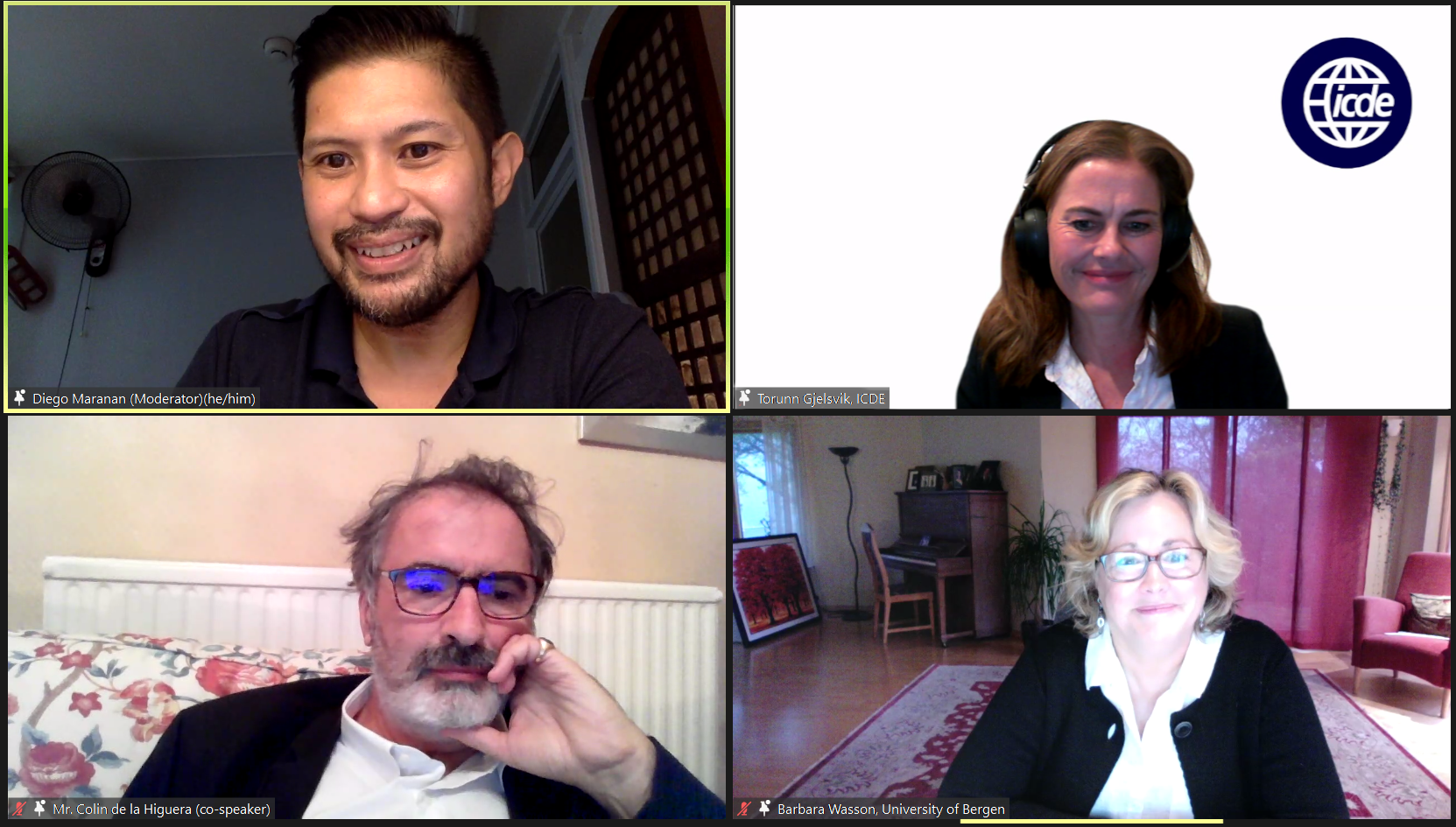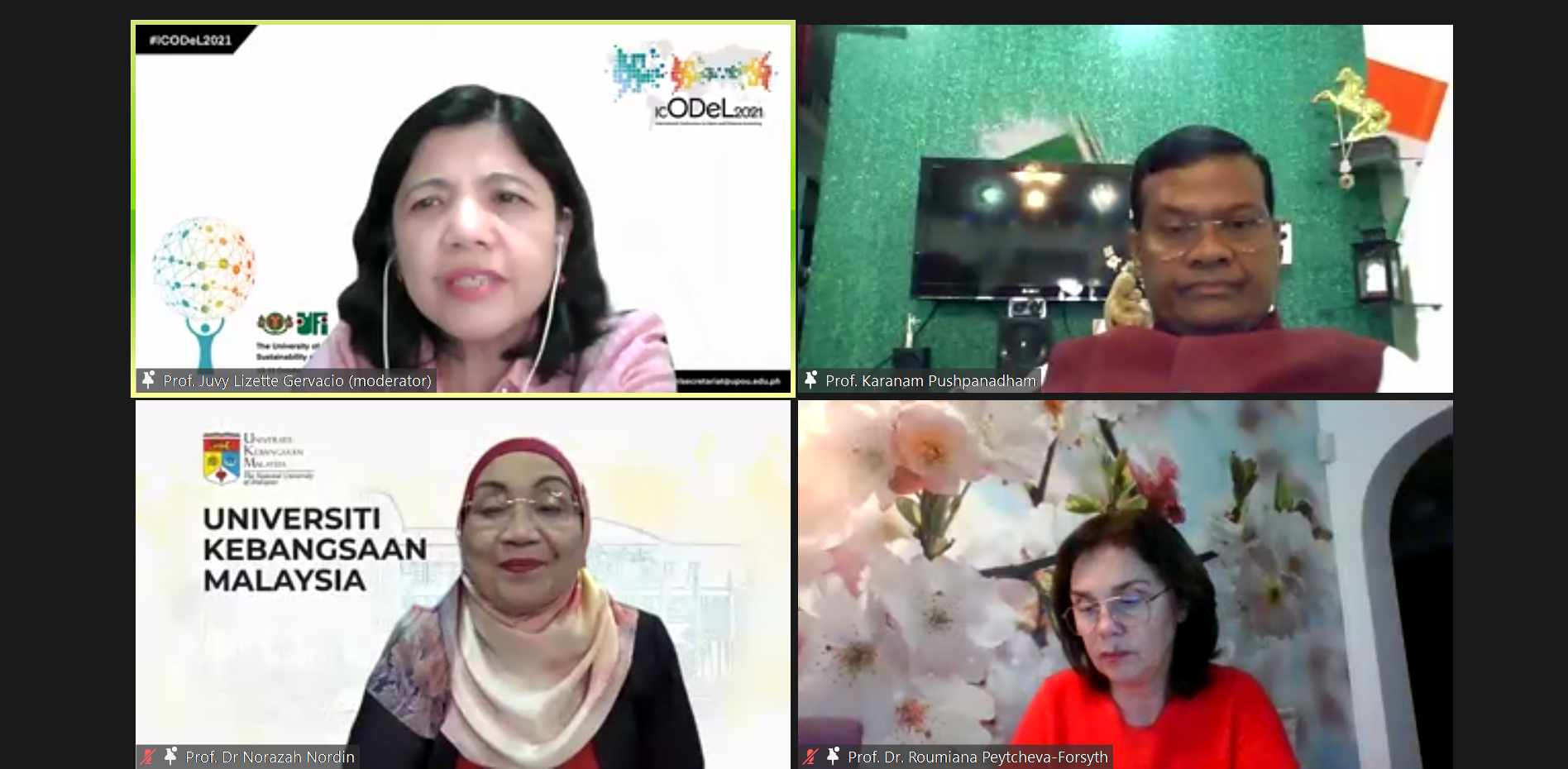The morning of the second day of the 4th International Conference on Open and Distance eLearning (ICODeL 2021) was devoted to the 107 paper presentations in six parallel sessions from researchers based all over the Philippines and abroad.
The afternoon session started off with a presentation by Ms. Torunn Gjelsvik, the Secretary-General of the International Council for Distance Education (ICDE), on the challenges and future directions of Artificial Intelligence (AI) in online education. Mr. Colin de la Higuera, UNESCO Chair on Open Education Resources; and Ms. Barbara Wasson, Director of SLATE (Center for the Science of Learning and Technology) also joined the session to share insights and answer questions on the topic. Serving as the moderator for this session was Asst. Prof. Dr. Diego Maranan, Program Chair of BAMS, UPOU; and co-founder of Space Ecologies Art and Design (SEADS).
The third plenary session was followed by a Special Session on Artificial Intelligence which focused on the discussion of the initiatives and researches of members of e-Asia Europe Meeting (e-ASEM) Research Network I. The session was moderated by Prof. Juvy Lizette Gervacio, Program Chair of the UPOU Master of Public Management.
Prof. Karanaman Pushpanadham, Professor of Educational Management at The Maharaja Sayajirao University in Baroda, India, opened the session by sharing the impacts of Artificial Intelligence in Education where he noted that Artificial Intelligence is useful in creating individualized and specialized learning by customizing learning resources. In her presentation titled “Shaping the Future of Education in the Age of Artificial Intelligence,” Dr. Norazah Nordin, Professor of Learning Technologies and Innovation and currently the Deputy Vice-Chancellor (Industry Alumni and Community Partnership) at the Universiti Kebangsaan Malaysia, shared the heutagogical approach in teaching and learning. Prof. Dr. Roumiana Peytcheva-Forsyth, Professor of Educational Technologies at the Sofia University and the Director of the National Centre for Distance Education in Bulgaria, highlighted the opportunities and challenges for e-assessment through her presentation on “Trust-based Authentication & Authorship e-Assessment Analysis: TeSLA Project and its Results.” Recommendations on how to minimize online cheating and strategies for assessment were further provided by the speakers during the Q and A forum. The application of Artificial Intelligence and its integration in the education system using the multi-disciplinary approach was also emphasized. The speakers closed the special session by encouraging the educators to see themselves as learning designers who are creative and innovative in designing the learning strategies and assessment suitable for their students.
Wriiten by ICODeL 2021 Publicity Committee
Edited by Joane V. Serrano










